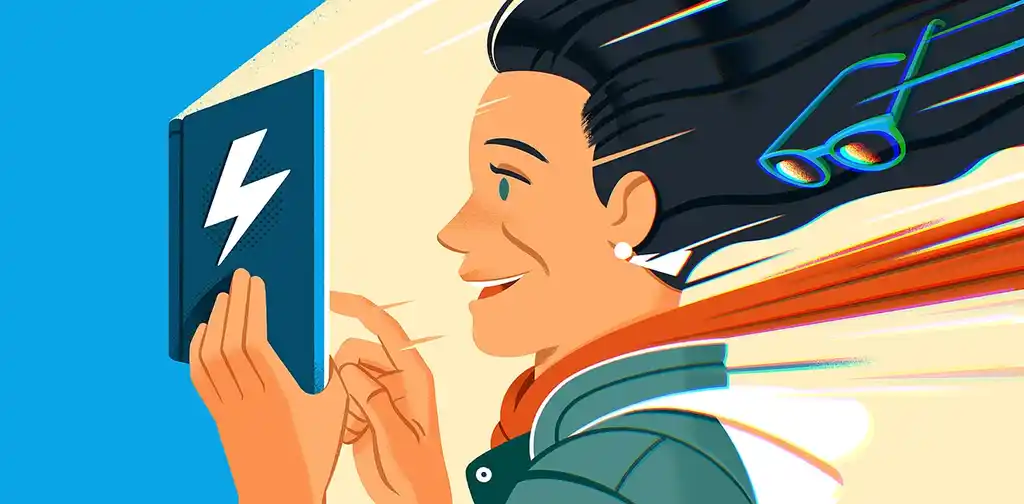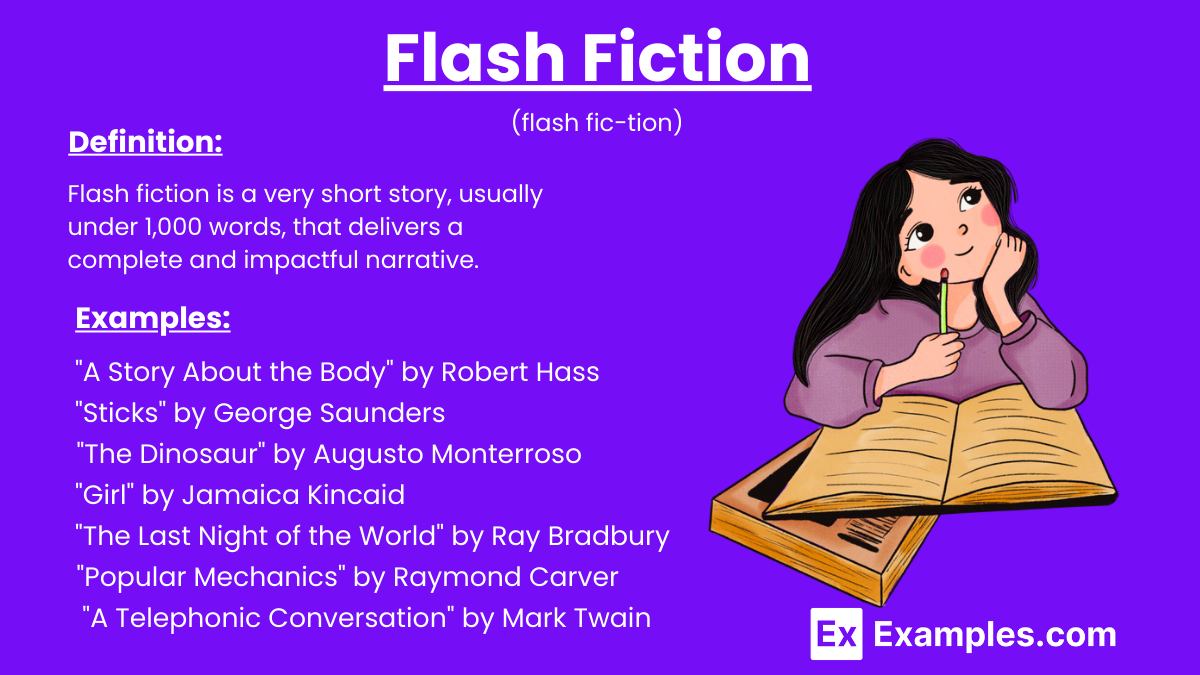
I used to think you needed pages—maybe even chapters—to tell a good story. Then I stumbled onto flash fiction. A complete story in 300 words? I was skeptical. But after reading a few pieces that hit like emotional freight trains in under a minute, I was hooked.
Flash fiction is storytelling distilled to its most potent form. There’s no time for fluff, no room for lazy sentences. Every word matters. And that’s what makes it both challenging and thrilling to write.
Whether you’re a writer looking to sharpen your skills or a reader wanting a quick literary fix, flash fiction delivers powerful stories in bite-sized form.
📚 What Is Flash Fiction?

Flash fiction is a very short story knowledge, typically under 1000 words, that still includes the key elements of narrative:
-
A character
-
A conflict or situation
-
Some form of resolution
It’s not just a scene, It’s not a poem,It’s a full story—just compressed.
Some well-known formats within the flash fiction umbrella include:
-
Microfiction (often under 300 words)
-
Drabbles (exactly 100 words)
-
Six-word stories (yes, it’s a thing: “For sale: baby shoes, never worn.”)
If done right, flash fiction can punch harder than a full-length novel in a fraction of the time.
🎯 Why Write Flash Fiction?
Writing flash fiction forces clarity. It sharpens your ability to:
-
Write with precision
-
Show, not tell
-
Trim the fat
-
Start in the middle of the action
-
End with impact
It’s also a great tool for:
-
Breaking writer’s block
-
Exploring story ideas quickly
-
Practicing different voices or genres
-
Submitting to contests or literary magazines (many actively seek flash fiction)
And let’s be real—people are busy. Sometimes, all we’ve got is five minutes and a craving for a good story.
✨ Elements of a Strong Flash Fiction Piece
Flash fiction doesn’t need everything a novel does—but it does need the essentials:
1. A Hook
Start strong. Your first sentence should pull the reader in immediately, whether through a question, surprise, or emotional gut punch.
“He buried her ring under the tomato plant and waited for it to bloom again.”
2. A Defined Conflict or Tension
It doesn’t have to be world-ending. It could be as small as a secret, a moment of change, or a broken promise. But there must be a point of tension.
3. Character Insight
Even in just a paragraph or two, readers want to feel something for the character. What do they want? What’s stopping them?
4. A Shift
This is often where the magic happens. A twist. A revelation. A small, powerful shift in the character or reader’s perspective.
5. A Resonant Ending
The end doesn’t have to tie everything up—but it should leave a mark. A chill, a smile, a question lingering in the mind.
🧠 Tips for Writing Great Flash Fiction
-
Start late, end early.
Jump into the action and leave some mystery. Trust your reader. -
Limit your cast.
Too many characters dilute the impact. Stick to one or two max. -
Use strong imagery.
A single sharp detail can say more than a full paragraph. -
Cut mercilessly.
Write long, then trim. Ask: Does this line earn its place? -
Experiment with form.
Try writing in second person, present tense, or even as a letter or voicemail. -
Read flash fiction often.
Check out sites like Flash Fiction Online or Smokelong Quarterly. See how others do it—and feel how much they can say with so little.
🔥 Example Prompt Ideas for Flash Fiction
-
A voicemail left after the end of the world
-
A stranger shows up claiming to know your biggest secret
-
A wedding ring found in a donation bin
-
A child’s imaginary friend turns out to be real
-
A person wakes up in someone else’s body—but they don’t mind
Even one sentence can be enough to spark a full story.
📝 How to Practice Flash Fiction
Here’s a simple writing challenge I use when I need to get the creativity flowing:
🕒 The 15-Minute Drill:
-
Set a timer for 15 minutes
-
Pick a random prompt
-
Write a complete story—no editing, just go
-
Stop when the timer’s up
-
Review and revise later
Do this regularly, and you’ll be amazed how quickly your writing tightens up.
✅ Final Thoughts: Big Stories in Small Packages
Flash fiction is proof that less can be more. You don’t need 80,000 words to move someone. Sometimes, all it takes is the right sentence at the right time.
If you’re a writer, flash fiction will make you better. If you’re a reader, it’ll surprise you, move you, and stay with you—long after the last line.
So grab a prompt, open a blank page, and try telling a whole story in under 1000 words. Trust me—it’s not just possible, it’s powerful.
Related Posts
 Etika Bermedia Sosial: Menjaga Jejak Digital Bijak
Etika Bermedia Sosial: Menjaga Jejak Digital Bijak
 Kepemimpinan Kampus: Laboratorium Nyata Pembentuk Karakter
Kepemimpinan Kampus: Laboratorium Nyata Pembentuk Karakter
 Alumni Network: Building Lifelong Connections in College (How I Made Friends, Landed Jobs & Still Get Help Today!)
Alumni Network: Building Lifelong Connections in College (How I Made Friends, Landed Jobs & Still Get Help Today!)



